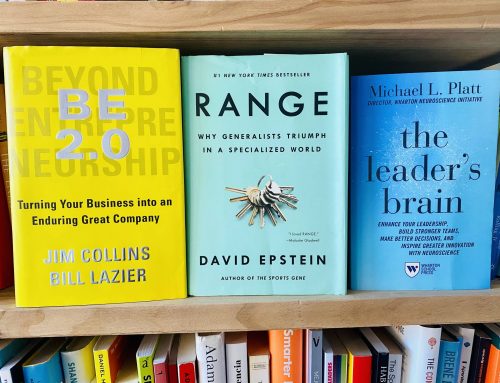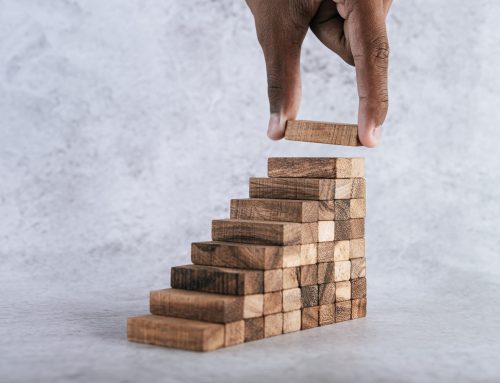In today’s society ruled by uncertainty, it is often a paradox that companies fear risk more than ever before, yet there are more startups than ever. While it is true that high-growth firms are being formed as actively as ever, these companies are not succeeding as often as such companies did years ago.
Still, we have recently witnessed a dramatic increase in the number of startups, primarily thanks to the relatively easy access to creating low-cost, high-impact ventures that hope to become the next big thing. “Prototyping”, “MVPs”, “iterating” and “traction” have become a common language for many of us in the entrepreneurship world, but this post is not only addressed to entrepreneurs but also, and especially, to those not familiar with these words. So don’t panic if this sounds Greek to you. Don’t panic if you hate the cheesy “dream big” coffee mugs.

Since we all love the benefits of the startup mindset, of this agile way of thinking and working…can then entrepreneurial management be applied in any industry and size of company? And, most importantly, could it be applied to our personal growth? According to research, the answer to both questions is… definitely yes. In fact, both are extremely related.
This is also the view of Eric Ries, one of the leading sources in the Entrepreneurship industry and the author of The Lean Startup, a book that revolutionized the business industry with concepts so embedded into our work now that a recent graduate wouldn’t believe they had never been discussed until the 2010’s (this shows how fast our world moves). In his latest book, The Startup Way, Ries argues that the startup mindset becomes more and more important as ventures get bigger. And I would go even further: the startup mindset becomes even more important as our career and personal growth get bigger.
In today’s interconnected world, new products and services can be built anywhere, with much lower barriers to entry than in the past. But what works for you today, will likely not work for you tomorrow. Therefore, embracing change has become a must to handle this pressure for creativity and innovation.

As the graph above shows, it took 75 years to reach 50 million telephone users and Pokemon Go just needed…19 days!!
How can we adapt to this increasingly faster society?
The more complex our world, the simpler our message must be
Entrepreneurship is rather an attitude than the simple creation of a project or venture. It is a state of mind that keeps us thirsty for knowledge, for reinventing ourselves and seeking an improved and updated version of ourselves. Thirsty for finding simple answers to difficult questions.
And reality (and research) shows that there aren’t that many differences between large corporations, small ventures and even individuals… We all want to grow and progress.
“If you hate big companies so much, why are you trying to create a new one?” (Eric Ries)
What are big corporations, small ventures and individuals like you and me doing to embrace change and to keep a startup state of mind?
- They are hiring people from other domains as consultants or advisors.
Diversity is more powerful than conformity. Large corporations are hiring entrepreneurs -with no idea about their business- to bring fresh insights and help them act by more flexible, innovative startup principles. Small ventures are seeking advice in older, more experienced entrepreneurs. And who are we “hiring” as individuals? Do we request feedback and advice from people that think different than us?
- They think of themselves as always being on Day 1 (see post about Amazon’s case)
- They understand that “hypergrowth for a company also requires hypergrowth of the people inside it” (Joe Zadeh, Airbnb VP of product).
Companies thinking just about their own growth will lose this game. People not thinking about helping others grow will also be out of the game. Your career success will likely depend on your environment’s success and vice versa.
- They assume that growing fast is painful. “Hypergrowth is painful, there is no way to do it gracefully. If it hurts, you’re not doing it wrong, you’re doing it right” (Ari Gesher).
Your professional and personal growth usually comes with some pain associated to it. If it hurts, it means you’re growing. If you feel comfortable, then you’re not learning…
- They stay young by empowering the younger generations.
If you want to leave a legacy, odds are you will do better by asking younger generations for advice, because your legacy will be for them primarily. After all, youth is also a state of mind, isn’t it?
It is time for us to see Entrepreneurship not just about creating projects, but about questioning the status quo in every aspect of our lives.
Can I live better?
Can I make others live better?
Can I leave a legacy?
We might not find the answers right away, but asking the right questions will definitely help us stay young, fresh and adapt to this awesome but uncomfortable friend called change.
Here is a good example about the startup mindset that might bring good memories to some of you…







Leave A Comment